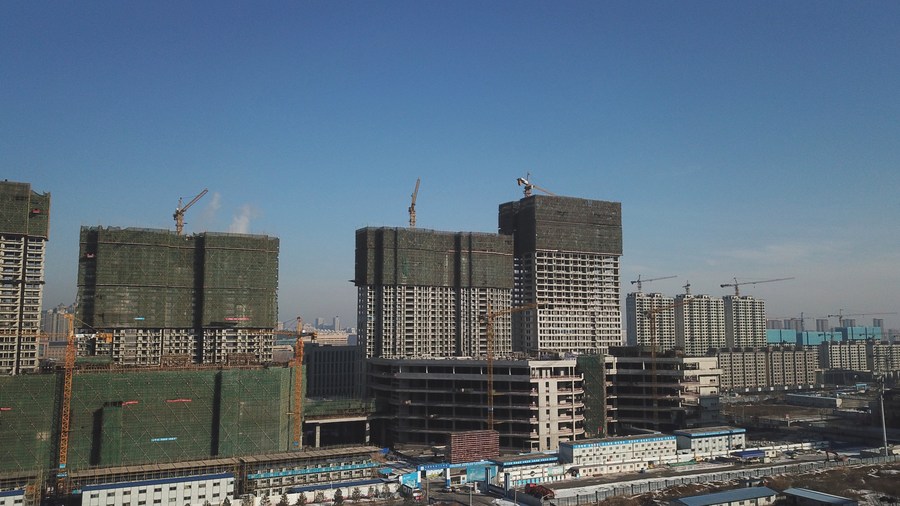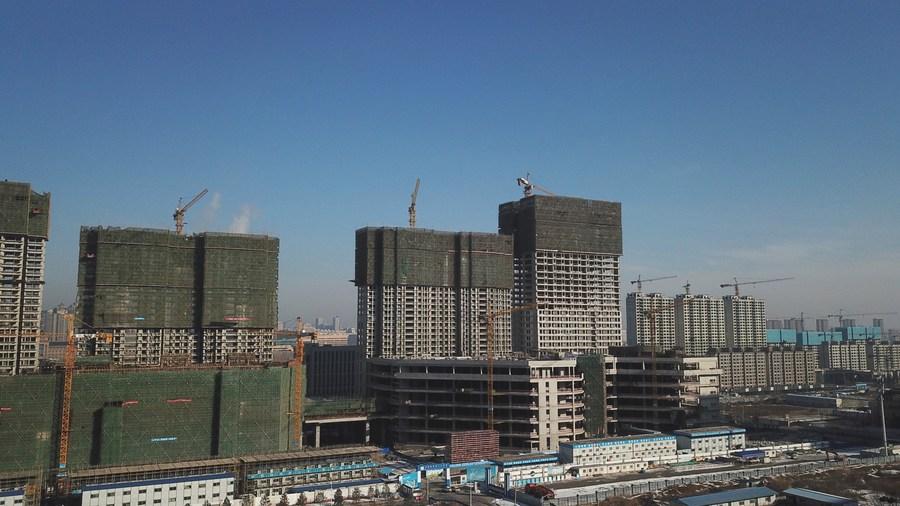
Aerial photo taken on Feb. 17, 2020 shows buildings under construction in Nanguan District of Changchun City, northeast China's Jilin Province. (Xinhua/Zhang Nan)
BEIJING, March 16 (Xinhua) -- China continued to see a generally stable housing market in February, with home prices in 70 major cities showing slight month-on-month increases, official data showed Wednesday.
New home prices in four first-tier cities -- Beijing, Shanghai, Shenzhen and Guangzhou -- rose 0.5 percent month on month in February, compared with a 0.6-percent increase registered in January, according to data from the National Bureau of Statistics (NBS).
Prices of second-hand homes in the four cities gained 0.5 percent, up 0.4 percentage points from the growth in January.
New home prices in 31 second-tier cities remained flat compared with that in January, while those in 35 third-tier cities witnessed a month-on-month decrease of 0.3 percent last month.
On a year-on-year basis, new home prices in first-tier cities rose 4.4 percent in February, flat with the expansion seen in January. New home prices in second-tier cities went up 2.1 percent while those in third-tier cities decreased 0.1 percent compared with the same period last year.
The slower year-on-year growth is due to the month-on-month declines of home prices registered in the second half, especially the October-December period of last year, said Yan Yuejin, research director at E-house China R&D Institute.
The latest NBS data released Tuesday showed that China's investment in property development rose 3.7 percent year on year to stand at around 1.45 trillion yuan (about 227.26 billion U.S. dollars) in the first two months.
"The housing market has seen positive changes," said NBS spokesperson Fu Linghui at a press conference on Tuesday, noting that the declining trend of home prices has been mitigated.
In this year's government work report, China reiterated the principle of "housing is for living in, not for speculation," vowing to keep land prices, housing prices and market expectations stable.
The country will move faster to develop the long-term rental market, promote the construction of government-subsidized housing, and support the commodity housing market in better meeting the reasonable needs of homebuyers, according to the report.
As China continues to implement the long-term mechanism in the housing market and adopt measures to better meet the reasonable needs of homebuyers, the housing market will maintain a steady and sound development, Fu noted.




 A single purchase
A single purchase









